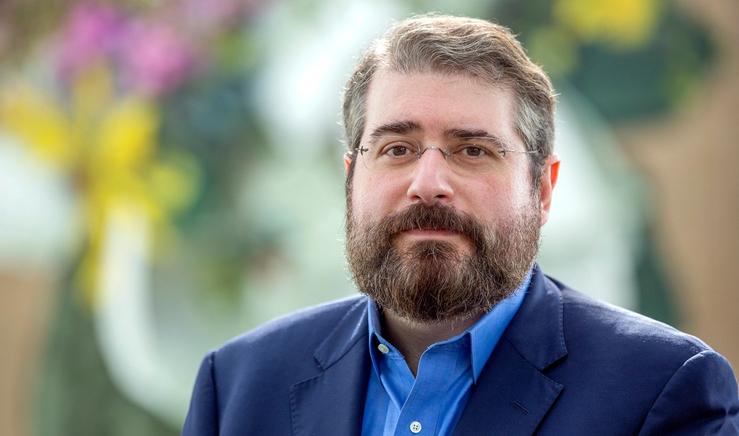The Scene
Igor Jablokov started his career at IBM, working on a precursor to its supercomputer Watson, what he calls “early baby AI stuff.” His first startup, Yap, was acquired by Amazon and underpinned the technology that became Alexa.
Now he’s betting that the future of AI doesn’t belong to the incumbents he spent most of his career working for. His startup, Pryon — a nod to the codename given to the Alexa project inside Amazon — has raised $55 million and is trying to help big companies and government agencies make sense of the data they have. He’s also a bit of an AI canary, as you’ll see from our chat below.
The View From Igor Jablokov
Liz: How worried should we be that AI is going to replace all of our jobs?
Igor: That’s nonsense. AI mimics what a human can do in the same way that an actor mimics what a physician or an attorney or a journalist does. It’s not making something that’s conscious or self-reflective.
What do big companies want? To increase their revenues and earnings by 10x. Well, we can’t grow from 8 billion to 80 billion human beings, so you and I need to be able to do 10 times the work.
And there are new jobs, too. Whenever we have a new piece of technology, a whole cottage industry gets formed around it. We saw that with mobile, we saw that with cloud, we saw that with social media.
Liz: But if you’re running a business, the temptation to replace expensive people with inexpensive machines just seems irresistible.
Igor: Maybe, but here’s the catch. The things that you’re going to be producing with generative AI aren’t works that you own. It’s considered the AI worked for hire. They don’t own it, they don’t have a copyright to it, and so they can’t put it in production.
People are barking up the wrong tree when BuzzFeed says, hey, we can start generating this content with AI. That’s fine if you want to spend money on content you don’t own.
Liz: You’re saying that if ChatGPT wrote a movie script and Universal Studios produced it, they would have no claim against pirated copies because the underlying material isn’t theirs?
Igor: I’m not an attorney, but yes.
Liz: At Pryon, you’re betting that the big tech companies aren’t going to run away with this. Why? They have a head start and a lot of money.
Igor: All these big tech folks used to be little tech, and there was somebody that they harassed and annoyed — the HPs, the IBMs, the Oracles. And now with AI, they are all thinking that it will buttress their businesses when in reality, it’s an opening for upstart companies.
Nokia and Blackberry were sitting, fat dumb and happy. The same thing will happen with this. Five years from now, there will be brands that nobody’s heard of today that have dominant positions.
Another thing: When you look at OpenAI and Microsoft, they fumbled and stumbled themselves into this thing that surprised everybody. OpenAI was terrified of [Google’s] DeepMind. And Microsoft was annoyed at Google search. So they were the two drowning victims that decided to do things that normally would have been considered taboo; computer scientists do not get paid to emit hallucinations.
Liz: Are regulators going to be able to get their arms around this?
Igor: I was talking once to Hugh McColl, who built up Bank of America in the 1990s. I asked about regulators, and he said, well, we always pay more than the regulators so we’re always a step ahead of them. Meta, Google, and the rest of them have great lobbyists. So they’re going to chisel themselves enough room.
They will adopt some guardrails because the paradox is that big entities, including banks, actually like regulation that makes it harder for new entrants to come in. And the water line for entering this industry is large in terms of capital that entities like mine need just to turn our lights on day one.
Liz: Are you worried about the death of creativity? AI can do a really good job producing content that mimics what’s already out there, but what happens when it stops getting fresh inputs?
Igor: Mad cow disease happens because cows eat portions of dead cows. So, yes. The web as you and I know it ended in 2022. Because when you and I did our searches in 2022 and before, anything that we were seeing was produced by human creativity. By the end of the decade, the majority is going to be AI-generated vomit. And training future models on that synthetic content is going to give them tumors and cancers.
Liz: What else keeps you up at night?
Igor: All of AI runs on these accelerators that are born in this one place [Taiwan]. Imagine you’re holding a snow globe and a bully wants it from you. There’s a good chance that in that tussle, no matter who wins, the snow globe is going to break.


